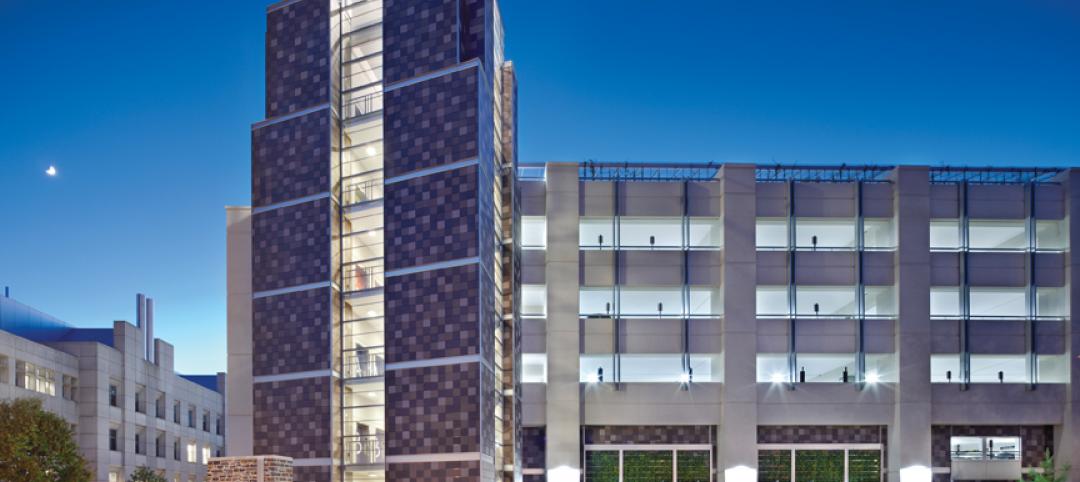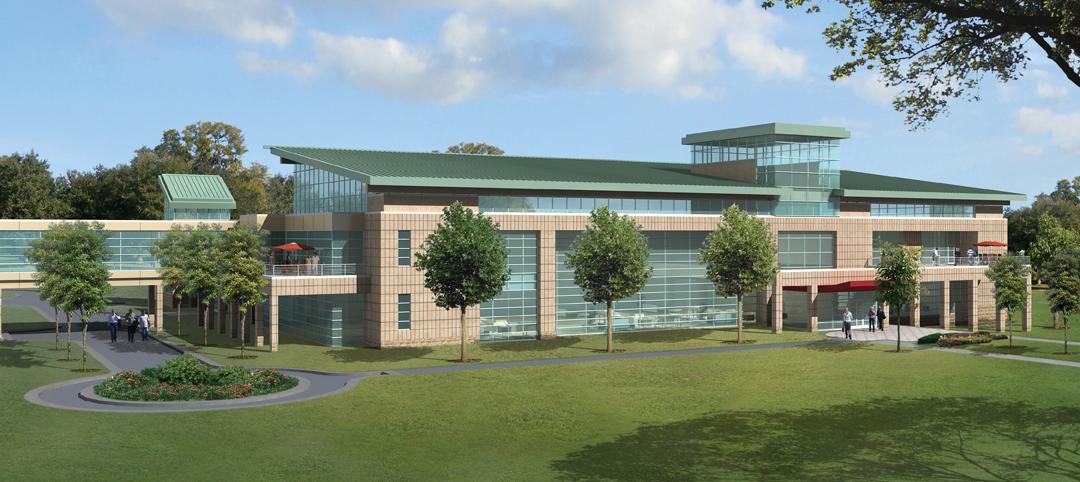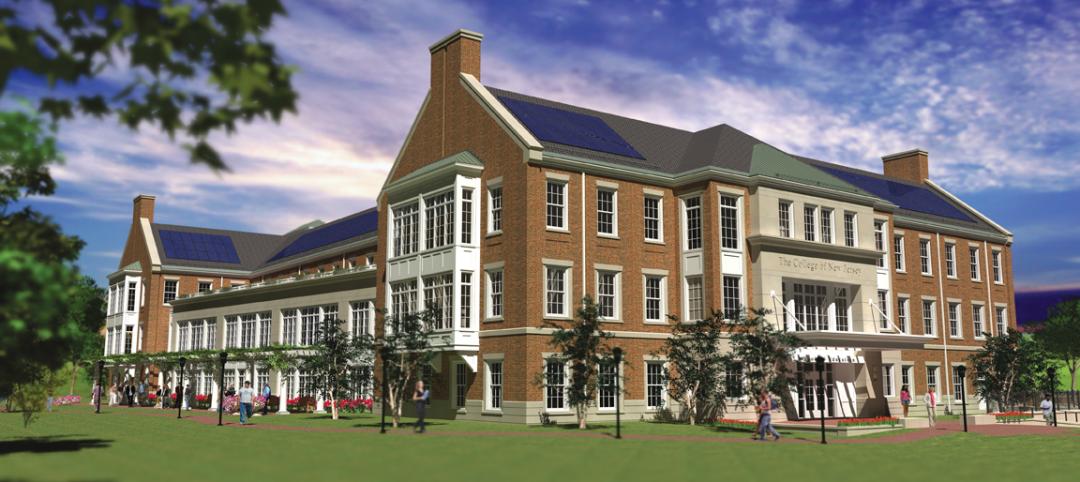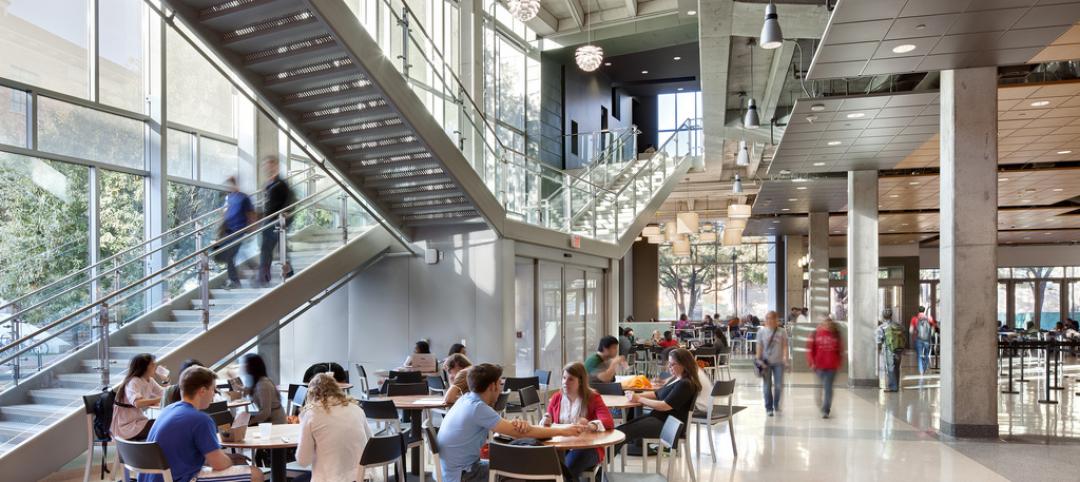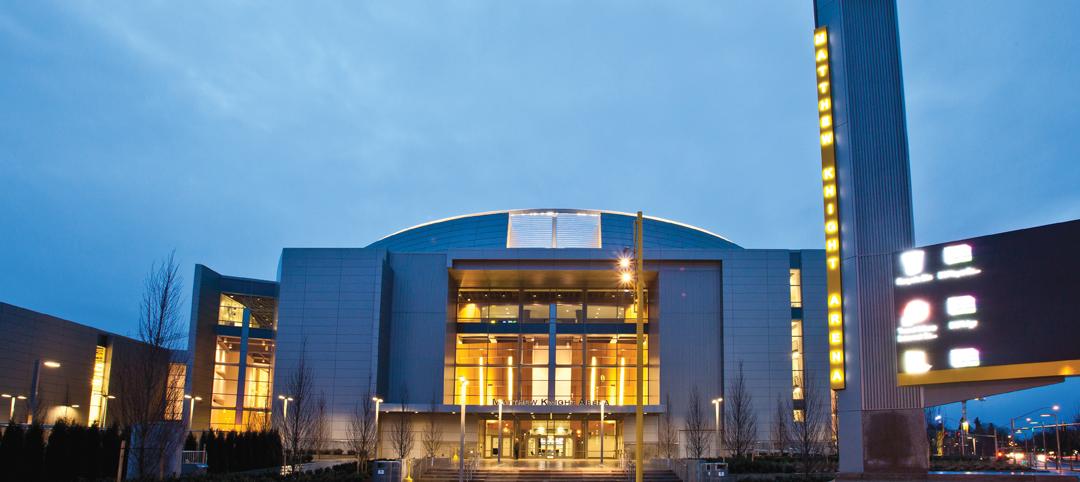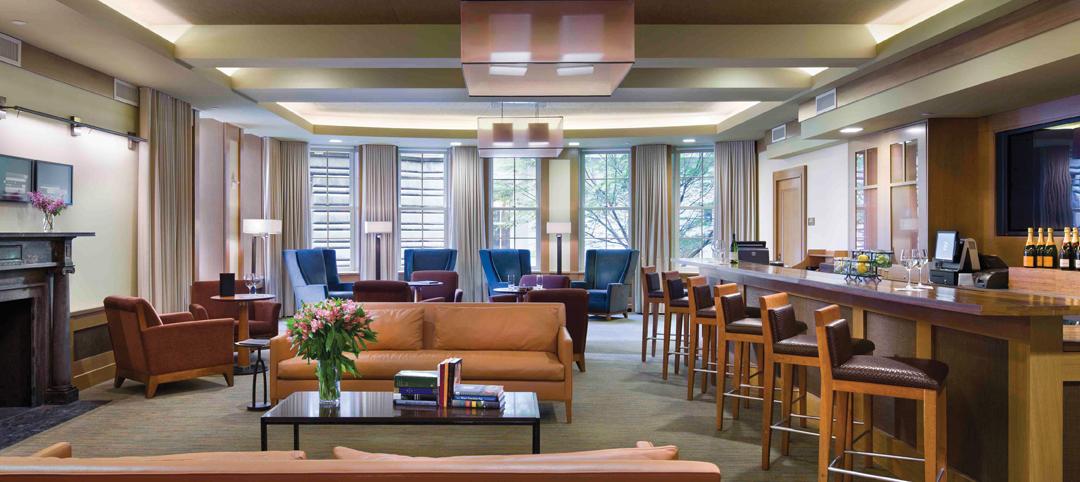The national general contractor Suffolk has had a longstanding relationship with the University of Massachusetts. Over the years it has built nine residential facilities on that institution’s 9,000-student campus at North Dartmouth, Mass., between Providence and Cape Cod, including the 800-bed Pine Dale and Oak Glen halls, and the 1,200-bed Woodland apartment complex.
Last month, the partners broke ground on a $134 million housing and dining complex on Parking Lot 7 near the university’s Campus Center and College of Visual and Performing Arts.
The project, when completed in the fall of 2020, will replace four residence halls that opened in 1976. It includes a 1,210-bed, 267,000-sf housing complex in two buildings, with an estimated cost of $108 million. These facilities will have classrooms, multimedia and study lounges, demonstration kitchens, and recreational spaces. A technology equipped maker space will enable students to work in groups. The buildings will also have soundproof music practice rooms and two computer learning commons.
The housing builldings will flank a $26 million, 38,000-sf student dining commons with an 800-person capacity, which replaces the university’s main dining hall built in 1977. Its design includes a large flat top grill where students can see their meals being prepared.
“Our team has worked in collaboration with the University from the beginning and we are excited to deliver a facility that will meet the unique needs of their students and faculty for decades to come,” says Randy Kreie, Principal and President of DiMella Shaffer, the construction’s design architect.
The residence halls are being built through a private-public partnership between the university and Greystar, which specializes in housing development and management. No state taxpayer funds will be used, and the project won’t add to the university’s debt. (The project is being financed through the UMass Building Authority.)
This is the first major state-funded building project on this campus since 1980, and represents the first phase of Chancellor Robert E. Johnson’s plan to focus capital investment on the 710-acre UMass Dartmouth main campus. (As part of the current project’s overall scope, the campus’s Science and Engineering Building is undergoing a $54 million renovation that is partly financed by $25 million in state funds.) Future initiatives will include renovation and modernization of academic buildings, the campus center, road infrastructure, and athletic facilities.
“We know from studies and our own extensive experience that providing high-quality living-learning environments for students increases graduation rates, retention rates and academic performance,” says UMass President Marty Meehan. “This project represents an investment in student success and student opportunity at UMass Dartmouth, which by extension will benefit the SouthCoast and the entire Commonwealth.”
Related Stories
| Apr 13, 2011
Duke University parking garage driven to LEED certification
People parking their cars inside the new Research Drive garage at Duke University are making history—they’re utilizing the country’s first freestanding LEED-certified parking structure.
| Apr 12, 2011
Rutgers students offered choice of food and dining facilities
The Livingston Dining Commons at Rutgers University’s Livingston Campus in New Brunswick, N.J., was designed by Biber Partnership, Summit, N.J., to offer three different dining rooms that connect to a central servery.
| Apr 12, 2011
College of New Jersey facility will teach teachers how to teach
The College of New Jersey broke ground on its 79,000-sf School of Education building in Ewing, N.J.
| Mar 23, 2011
After 60 years of student lobbying, new activity center opens at University of Texas
The new Student Activity Center at the University of Texas campus, Austin, is the result of almost 60 years of students lobbying for another dedicated social and cultural center on campus. The 149,000-sf facility is designed to serve as the "campus living room," and should earn a LEED Gold certification, a first for the campus.
| Mar 18, 2011
Universities will compete to build a campus on New York City land
New York City announced that it had received 18 expressions of interest in establishing a research center from universities and corporations around the world. Struggling to compete with Silicon Valley, Boston, and other high-tech hubs, officials charged with developing the city’s economy have identified several city-owned sites that might serve as a home for the research center for applied science and engineering that they hope to establish.
| Mar 15, 2011
What Starbucks taught us about redesigning college campuses
Equating education with a cup of coffee might seem like a stretch, but your choice of college, much like your choice of coffee, says something about the ability of a brand to transform your day. When Perkins + Will was offered the chance to help re-think the learning spaces of Miami Dade College, we started by thinking about how our choice of morning coffee has changed over the years, and how we could apply those lessons to education.
| Mar 11, 2011
University of Oregon scores with new $227 million basketball arena
The University of Oregon’s Matthew Knight Arena opened January 13 with a men’s basketball game against USC where the Ducks beat the Trojans, 68-62. The $227 million arena, which replaces the school’s 84-year-old McArthur Court, has a seating bowl pitched at 36 degrees to replicate the close-to-the-action feel of the smaller arena it replaced, although this new one accommodates 12,364 fans.
| Mar 11, 2011
Historic McKim Mead White facility restored at Columbia University
Faculty House, a 1923 McKim Mead White building on Columbia University’s East Campus, could no longer support the school’s needs, so the historic 38,000-sf building was transformed into a modern faculty dining room, graduate student meeting center, and event space for visiting lecturers, large banquets, and alumni organizations.
| Mar 11, 2011
Texas A&M mixed-use community will focus on green living
HOK, Realty Appreciation, and Texas A&M University are working on the Urban Living Laboratory, a 1.2-million-sf mixed-use project owned by the university. The five-phase, live-work-play project will include offices, retail, multifamily apartments, and two hotels.



